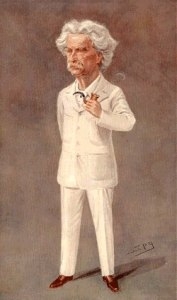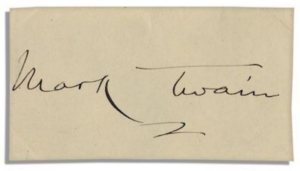”We hold the balance of power. Put up your best men for office, and we shall support the better one.”
Speaking on the subject of municipal corruption
 Bishop Potter told how an alleged representative of Tammany Hall asked him in effect if he would cease his warfare upon the Police Department if a certain captain and inspector were dismissed. He replied that he would never be satisfied until the “man at the top” and the “system” which permitted evils in the Police Department were crushed.
Bishop Potter told how an alleged representative of Tammany Hall asked him in effect if he would cease his warfare upon the Police Department if a certain captain and inspector were dismissed. He replied that he would never be satisfied until the “man at the top” and the “system” which permitted evils in the Police Department were crushed.
The Bishop has just spoken of a condition of things which none of us can deny, and which ought not to exist; that is, the lust of gain – a lust which does not stop short of the penitentiary or the jail to accomplish its ends. But we may be sure of one thing, and that is that this sort of thing is not universal. If it were, this country would not be. You may put this down as a fact: that out of every fifty men, forty-nine are clean. Then why is it, you may ask, that the forty-nine don’t have things the way they want them? I will tell you why it is. A good deal has been said here tonight about what is to be accomplished by organization. That is just the thing. It is because the fiftieth fellow and his pals are organized and the other forty-nine are not that the dirty one rubs it into the clean fellows every time.
You may say organize, organize, organize; but there may be so much organization that it will interfere with the work to be done. The Bishop here had an experience of that sort and told all about it down-town the other night. He was painting a barn – it was his own barn – and yet he was informed that his work must stop; he was a non-union painter, and could not continue at that sort of job.
Now, all these conditions of which you complain should be remedied, and I am here to tell you just how to do it. I have been a statesman without salary for many years, and I have accomplished great and widespread good. I do not know that it has benefited anybody very much, even if it was good; but I do know that it hasn’t harmed me very much, and is has not made me any richer.
We hold the balance of power. Put up your best men for office, and we shall support the better one. With the election of the best man for Mayor would follow the selection of the best man for Police Commissioner and Chief of Police.
My first lesson in the craft of statesmanship was taken at an early age. Fifty-one years ago I was fourteen years old, and we had a society in the town I lived in, patterned after the Freemasons, or the Ancient Order of United Farmers, or some such thing – just what it was patterned after doesn’t matter. It had an inside guard and an outside guard, and a past grand warden, and a lot of such things, so as to give dignity to the organization and offices to the members.
Generally speaking it was a pretty good sort of organization, and some of the very best boys in the village, including – but I must not get personal on an occasion like this – and the society would have got along pretty well had it not been for the fact that there were a certain number of the members who could be bought. They got to be an infernal nuisance. Every time we had an election the candidates had to go around and see the purchasable members. The price per vote was paid in doughnuts, and it depended somewhat on the appetites of the individuals as to the price of the votes.
This thing ran along until some of us, the really very best boys in the organization, decided that these corrupt practices must stop, and for the purpose of stopping them we organized a third party. We had a name, but we were never known by that name. Those who did not like us called us the Anti-Doughnut party, but we did not mind that.
We said: “Call us what you please; the name doesn’t matter. We are organized for a principle.” By-and-by the election came around, and we made a big mistake. We were triumphantly beaten. That taught us a lesson. Then and there we decided never again to nominate anybody for anything. We decided simply to force the other two parties in the society to nominate their very best men. Although we were organized for a principle, we didn’t care much about that. Principles aren’t of much account anyway, except at election-time. After that you hang them up to let them season.
The next time we had an election we told both the other parties that we’d beat any candidates put up by any one of them of whom we did not approve. In that election we did business. We got the man we wanted. I suppose they called us the Anti-Doughnut party because they could not buy us with their doughnuts. They did not have enough of them. Most reformers arrive at their price sooner or later, and I suppose we would have had our price; but our opponents weren’t offering anything but doughnuts, and those we spurned.
Now it seems to me that an Anti-Doughnut party is just what is wanted in the present emergency. I would have the Anti-Doughnuts felt in every city and hamlet and school district in this State and in the United States. I was an Anti-Doughnut in my boyhood, and I am an Anti-Doughnut still. The modern designation is Mugwump. There used to be quite a number of us Mugwumps, but I think I am the only one left. I had a vote this fall, and I began to make some inquiries as to what I had better do with it.
I do not know anything about finance, and I never did, but I know some pretty shrewd financiers, and they told me that Mr. Bryan was not safe on any financial question. I said to myself, then, that it would not do for me to vote for Bryan, and I rather thought – I know now – that McKinley was not just right on this Philippine question, and so I just did not vote for anybody. I have got that vote yet, and I have kept it clean, ready to deposit at some other election. It was not cast for any wildcat financial theories, and it was not cast to support the man who sends our boys as volunteers out into the Philippines to get shot down under a polluted flag.

